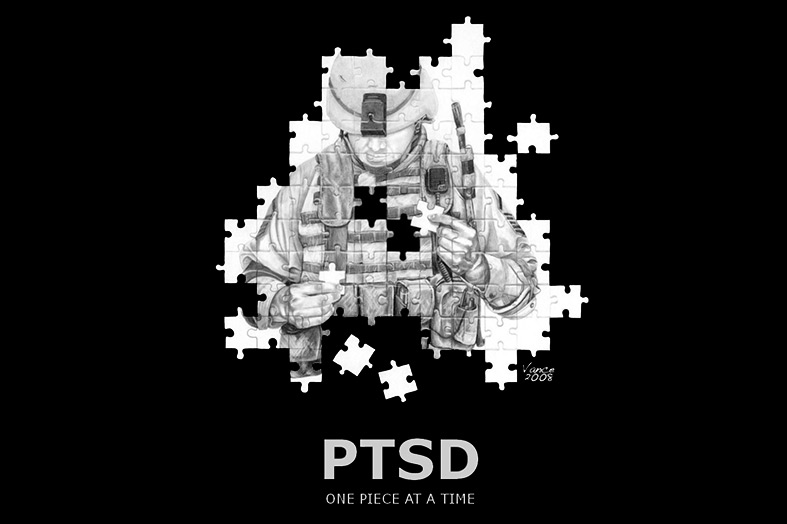A leading talk therapy for civilians with post-traumatic stress disorder, known as Cognitive Processing Therapy (CPT), also is effective for many who suffer from combat-related PTSD. This is the finding of researchers conducting the largest clinical trial to date to document an evidence-based treatment for PTSD in active-duty military personnel.
According to study findings published online Nov. 23 in JAMA Psychiatry, which include all who entered a trial comparing up to 12 sessions of CPT delivered in either group or individual format over the course of six weeks, nearly half of those receiving individual CPT and nearly 40 percent of those receiving group CPT recovered from PTSD. Findings showed not only significant reductions in PTSD symptoms, but also in depression and suicidal thinking, all of which were maintained over time.
The groundbreaking trial was conducted at the U.S. Army’s Fort Hood in Killeen, Texas, for the multi-institutional STRONG STAR Consortium, which is funded by the U.S. Department of Defense and based at UT Health San Antonio.
Patricia Resick, Ph.D., the developer of CPT and professor of psychiatry and behavioral sciences at Duke University School of Medicine, led the study comparing two different ways of delivering treatment with CPT. CPT is a therapy that helps patients challenge distorted thoughts that perpetuate unhelpful emotions related to their trauma, such as guilt, blame and anger, and to process their natural emotions, leading to a healthier viewpoint and more control over traumatic memories.
In the clinical trial, 268 active service members diagnosed with combat-related PTSD were assigned randomly to receive CPT either in individual or group format. The research team found both formats effective for many patients, but those receiving individual therapy showed significantly greater improvement.
Participants in individual therapy showed large improvements in the severity of their PTSD symptoms and group participants showed medium to large improvements. The study also showed that CPT resulted in significant reductions in depression and suicidal thinking, regardless of the treatment format. These findings continued through a six-month follow-up.
“This is very encouraging, especially since the trial was based only on 12 sessions of therapy over six weeks,” said Dr. Resick, the paper’s first author. “People often think you have to go to therapy for years to address PTSD. But in this large-scale clinical trial with CPT, we saw such a large percentage of patients show significant improvements and even fully recover from PTSD in a matter of weeks. This makes the therapy a good option for service members who wish to stay fit for active duty and veterans seeking to reintegrate into civilian life.”
While concluding that individual CPT is the more effective means of delivering treatment, the research team also suggested that group CPT should remain an option to keep therapy accessible when there are not enough therapists available to treat individually all of those needing treatment for PTSD.
“The results of this study provide the strongest scientific evidence to date that combat-related PTSD can be effectively treated in active duty military personnel,” said co-author Alan Peterson, Ph.D., director of the STRONG STAR Consortium and professor in the Department of Psychiatry at the UT Health Science Center San Antonio. However, he added, there still is room for improvement in order to help more service members heal from their psychological wounds.
Noting that this trial and others with veterans have similarly shown added difficulty in treating combat-related PTSD as compared to PTSD in civilians, the research team concluded, “In the military population, much remains to be done to improve existing treatments like CPT or develop new treatments.”
They suggested research focusing on specific issues found in military populations that may affect PTSD treatment, including a look at the roles of substance abuse and traumatic brain injury, and assessing the potential benefits of varying treatment length according to patient needs.
“Already, the STRONG STAR Consortium is starting to address many of these issues, with additional clinical trials in progress that seek to tailor and enhance CPT for combat-related PTSD and improve its effectiveness with service members and veterans,” Dr. Peterson said.


